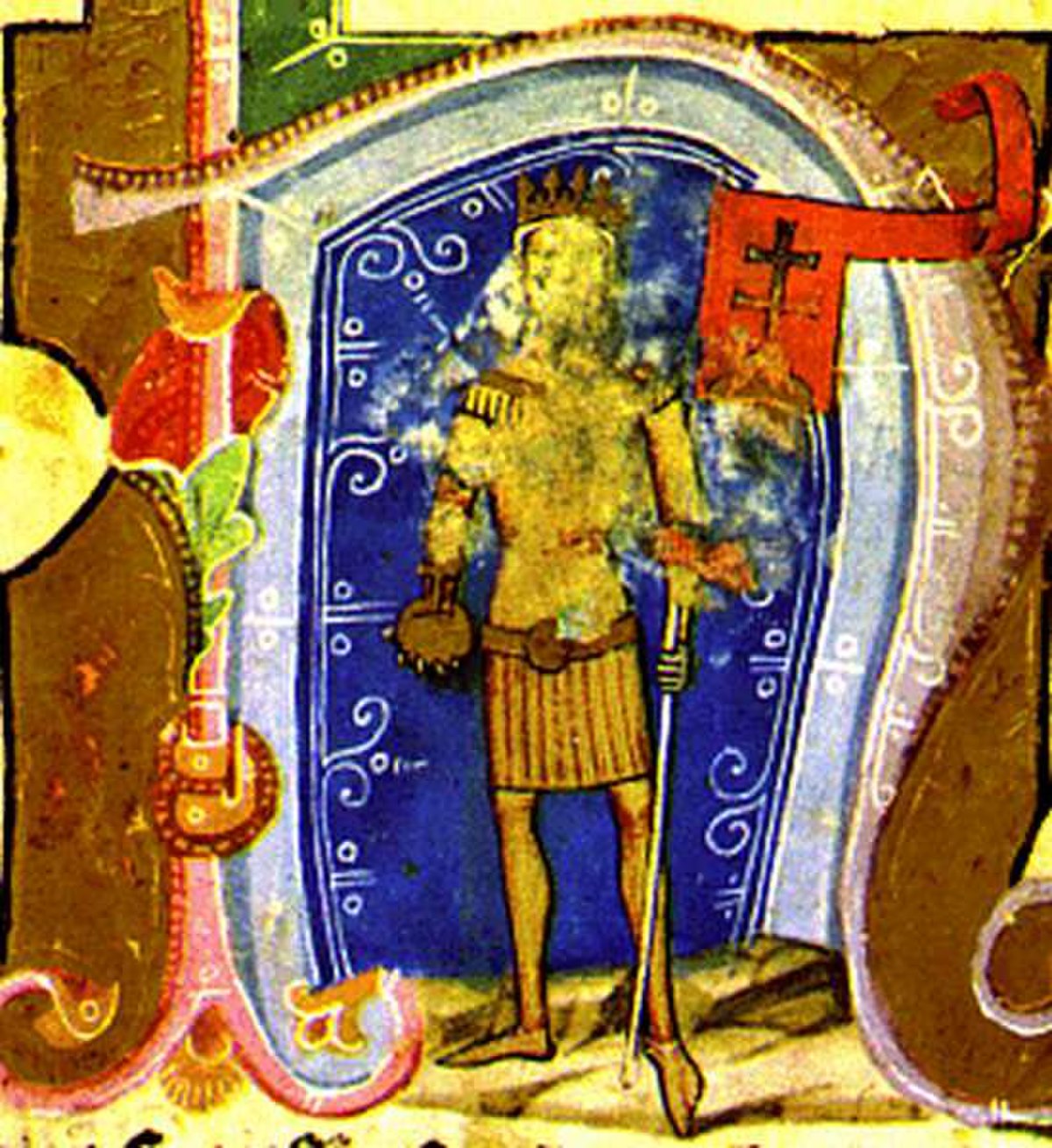
Reign of Andrew II
Esztergom, HungaryAndrew's rule was unpopular, and the boyars (or noblemen) expelled him. Béla III willed property and money to Andrew, obliging him to lead a crusade to the Holy Land. Instead, Andrew forced his elder brother, King Emeric of Hungary, to cede Croatia and Dalmatia as an appanage to him in 1197. The following year, Andrew occupied Hum. Despite the fact that Andrew did not stop conspiring against Emeric, the dying king made Andrew guardian of his son, Ladislaus III, in 1204. After the premature death of Ladislaus, Andrew ascended the throne in 1205.
He waged at least a dozen wars to seize the two Rus' principalities, but was repelled by the local boyars and neighboring princes. He participated in the Fifth Crusade to the Holy Land in 1217–1218, but the crusade was a failure.
When the servientes regis, or "royal servants", rose up, Andrew was forced to issue the Golden Bull of 1222, confirming their privileges. This led to the rise of the nobility in the Kingdom of Hungary. The employment of Jews and Muslims to administer the royal revenues led him into conflict with the Holy See and the Hungarian prelates. Andrew pledged to respect the privileges of the clergymen and to dismiss his non-Christian officials in 1233, but he never fulfilled the latter promise.
Ask Herodotus
HistoryMaps Shop

Heroes of the American Revolution Painting
Explore the rich history of the American Revolution through this captivating painting of the Continental Army. Perfect for history enthusiasts and art collectors, this piece brings to life the bravery and struggles of early American soldiers.








